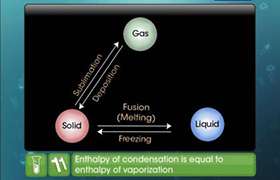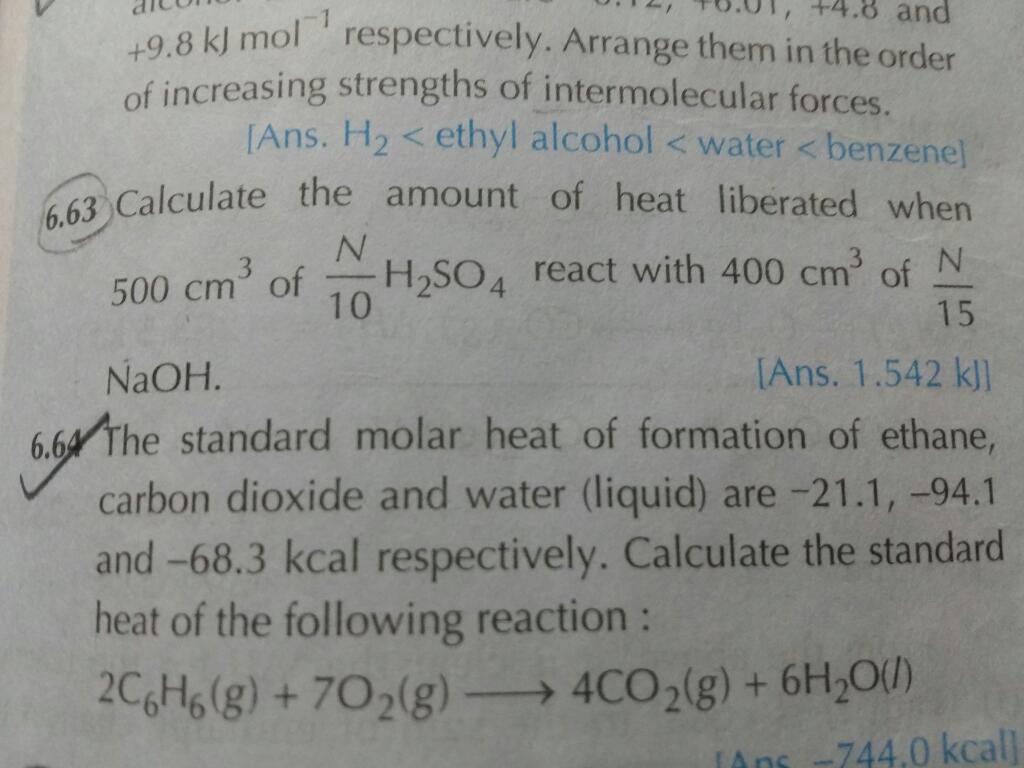CBSE Class 11-science Answered
I have got some confusion .
In the Ncert Chemistry Tb , part 1 , pg 161 . left hand side , bottom of the page , it is given in bold that delta H is negative for exothermic reactions which evolve heat during the reaction and delta H is positive for endothermic reactions which absorb heat from the surrondings .
In Enthalpy change video lesson of topperlearning , part 1 , just after 4.21 mins , it is given that
For , NH4NO3 (s) --> NH4NO3 (aq) , since the temperature decreases during the reaction , it is positive enthalpy of solution . ( but how is it positive ? i guess both delta H and enthalpy change of a solution is almost change . Since the temp decreases here , it is endothermic , so it should be positive right ? )
Plz explain this clearly .. Are both of the above processes different from each other and are the sign conventions vice versa for each other ?
Asked by Saravanan | 08 Sep, 2014, 11:54: PM
Dear gysaravana@yahoo.com
Thanks for asking us a question in Ask the Expert section of TopperLearning.com.
For the given reaction; NH4NO3 (s) → NH4NO3 (aq);
- The temperature decreases during the reaction that is the heat energy is absorbed.
- Thus, the reaction is endothermic and the value of delta H is positive.
- Therefore, as per the information given in the textbook, delta H is positive for endothermic reactions which absorb heat from the surroundings.
- Yes. Both of the processes, exothermic and endothermic are different from each other. During exothermic reaction, heat energy is evolved whereas in endothermic reaction heat energy is absorbed. And thus, sign conventions are also vice versa for each other.
Note:
Some salts dissolve endothermically (KCl, NaHCO3, NH4NO3), some dissolve exothermically (CaCl2, Na2CO3), and others are thermally neutral, such as sodium chloride.
For exothermic dissolving:
The process of dissolving is exothermic when more energy is released when water molecules “bond” to the solute than is used to pull the solute apart. Because more energy is released than is used, the molecules of the solution move faster, making the temperature increase.
For endothermic dissolving:
The process of dissolving is endothermic when less energy is released when water molecules “bond” to the solute than is used to pull the solute apart. Because less energy is released than is used, the molecules of the solution move more slowly, making the temperature decrease.Regards
Topperlearning Team.
Topperlearning Team.
Answered by Hanisha Vyas | 22 Sep, 2014, 01:02: PM
Concept Videos
CBSE 11-science - Chemistry
Asked by advssdrall | 11 Jan, 2022, 07:44: PM
CBSE 11-science - Chemistry
Asked by adityasolanki7773 | 22 Oct, 2020, 03:40: PM
CBSE 11-science - Chemistry
Asked by pranavisrihari | 08 Sep, 2020, 05:24: PM
CBSE 11-science - Chemistry
Asked by varakalasuchi3 | 28 Mar, 2020, 04:47: PM
CBSE 11-science - Chemistry
Asked by patra04011965 | 09 Nov, 2019, 12:18: PM
CBSE 11-science - Chemistry
Asked by prakriti12oct | 27 Sep, 2019, 01:43: AM
CBSE 11-science - Chemistry
Asked by prakriti12oct | 26 Sep, 2019, 01:40: AM
CBSE 11-science - Chemistry
Asked by sayantan.chem2 | 06 Aug, 2019, 05:07: PM
CBSE 11-science - Chemistry
Asked by lovemaan5500 | 21 Jan, 2019, 06:37: AM
CBSE 11-science - Chemistry
Asked by Atulcaald | 25 May, 2018, 12:24: AM










